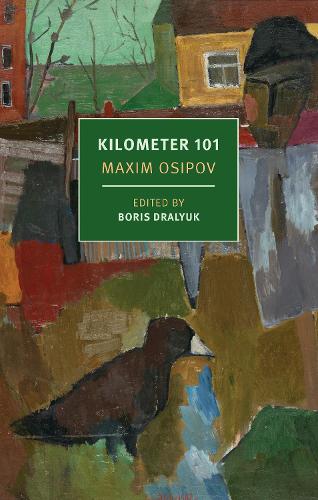
Kilometer 101
(Paperback)
Publishing Details
Kilometer 101
By (Author) Maxim Osipov
By (author) Boris Dralyuk
New York Review Books
NYRB Classics
29th November 2022
11th October 2022
United States
Classifications
General
Fiction
891.785
Physical Properties
Paperback
296
Width 127mm, Height 203mm
Description
A new collection of short fiction and nonfiction by a Russian master of bittersweet humor, dramatic irony, and poignant insights into contemporary life. The town of Tarusa lies 101 kilometers outside Moscow, far enough to have served, under Soviet rule, as a place where former political prisoners and other "undesirables" could legally settle. Lying between the center of power and the provinces, between the modern urban capital and the countryside, Tarusa is the perfect place from which to observe a Russia that, in Maxim Osipov's words, "changes a lot in the course of a decade , but in two centuries-not at all." The stories and essays in this volume-a follow-up to his debut in English, Rock, Paper, Scissors-tackle major questions of modern life in and beyond Russia with Osipov's trademark blend of daring and subtlety. Deceit, political pressure, ethnic discrimination, the urge to emigrate, and the fear of abandoning one's home, as well as myriad generational debts and conflicts, are as complexly woven through these pieces as they are through the lives of Osipov's fellow Russians and through our own. What binds the prose in this volume is not only a set of concerns, however, but also Osipov's penetrating insights and fearless realism. "Dreams fall away, one after another," he writes in the opening essay, "some because they come true, but most because they prove pointless." Yet, as he reminds us in the final essay, when viewed from ground level, "life tends not towards depletion, towards zero, but, on the contrary, towards repletion, fullness."
Reviews
Artfully conventional, Chekhovian collection of tales and essays. Peter Keough, The Arts Fuse
"Though Osipov centres Kilometer 101, his second collection of clear-eyed story-telling to appear in English on his former hometown in Russia, the book is at heart about flights and exile....The combination of sharp realism and understated refinement characteristic of Osipovs prose beautifully conveys the ills, evils and anaesthetizing greyness symptomatic of life in provincial Russia, past and present.... It is impossible to read Kilometer 101 detached from the current political reality."Bryan Katetnyk, Financial Times
". . . damning, and at times extremely funny. . . .[the] latest, brilliant collection of Osipovs works." Francesca Peacock, The Spectator World
"Now is a difficult time to empathise with Russians which is why we need Maxim Osipov. We need him to bring alive to us what it means to live in Putins Russia. . . .we need him to remind us of the kaleidoscope of qualities that a country like Russia inevitably contains the humanity and generosity as well as the stupidity and cruelty. . . . when the world is deciding how to deal with the aftermath of Putins. . .defeat, I hope Kilometer 101 will be admitted in the Russian peoples defence." Charlotte Hobson, The Spectator (UK)
"By extending his self-deprecating tone to the mood of an entire country, the author succeeds at conveying the faded hopes of a generation." Publishers Weekly
Author Bio
Maxim Osipov (b. 1963) is a Russian writer and cardiologist. In the early 1990s he was a research fellow at the University of California, San Francisco, before returning to Moscow, where he continued to practice medicine and also founded a publishing house that specialized in medical, musical, and theological texts. In 2005, while working at a local hospital in Tarusa, a small town ninety miles from Moscow, Osipov established a charitable foundation to ensure the hospital's survival. Since 2007, he has published short stories, novellas, essays, and plays, and has won a number of literary prizes for his fiction. He has published six collections of prose, and his plays have been staged all across Russia. Osipov's writings have been translated into more than a dozen languages. He lived in Tarusa up until February 2022, when he moved to Germany. Boris Dralyuk is a poet, a translator, and the Editor-in-Chief of the Los Angeles Review of Books. He is a translator of Maxim Osipov's Rock, Paper, Scissors and Other Stories, Lev Ozerov's Portraits Without Frames, and a co-translator of Pushkin's Peter the Great's African, all published by NYRB Classics.
